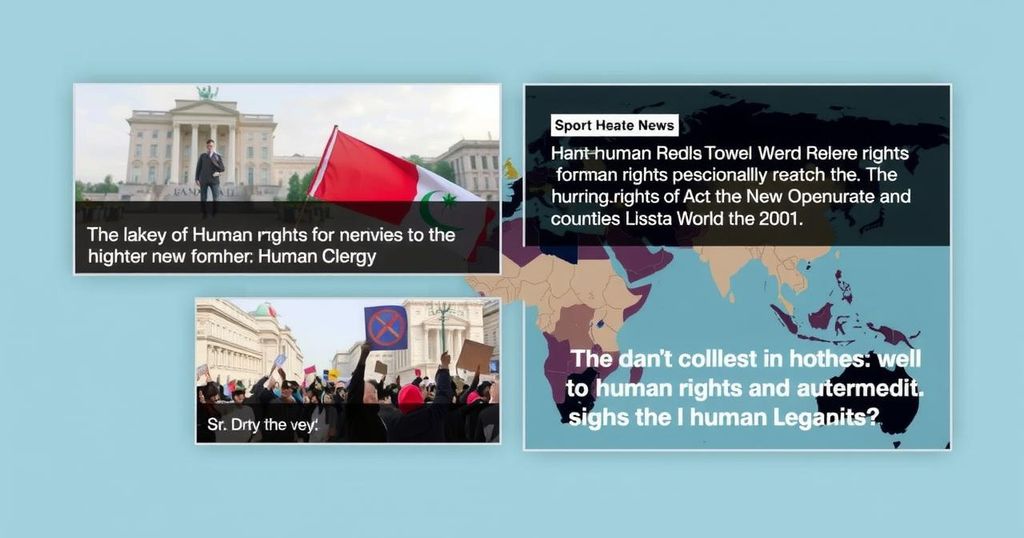The UN has raised alarm over killings of Alawite individuals in Syria, urging adherence to human rights laws. Concurrently, Iran reported a significant increase in executions, prompting condemnation from the UN. In the Central African Republic, new legislation to protect human rights defenders has been celebrated as a significant step for civil rights. These situations indicate a pressing need for international human rights interventions and the protection of vulnerable populations.
The UN Office of the High Commissioner for Human Rights (OHCHR) has voiced concern over the targeting and killings of individuals from the Alawite community and other minorities in Syria. Spokesperson Liz Throssell has indicated awareness of reports detailing the killings in regions such as Homs since the downfall of the Assad regime. The OHCHR has called for compliance with international humanitarian and human rights laws to protect minorities and ensure accountability for crimes committed. Meanwhile, in Iran, there has been a startling rise in executions, with at least 901 individuals reported executed in 2024 alone. The UN High Commissioner for Human Rights, Volker Türk, underscored the gravity of this increase and condemned the death penalty, specifically pointing out that many victims included women facing charges connected to domestic violence. Additionally, the Central African Republic has adopted a significant law aimed at improving protections for human rights defenders, marking a vital step in safeguarding freedom of expression, association, and civic space. This legislation is recognized as a noteworthy advancement in the country’s human rights framework, reinforcing the pivotal role of civil society in promoting democracy and justice.
This article highlights serious human rights violations occurring in Syria, Iran, and the Central African Republic (CAR). In Syria, following the recent regime change, there have been alarming reports of targeted killings of the Alawite community. In Iran, the issue has escalated with a dramatic increase in executions linked to drug offenses and dissent. In contrast, CAR has made strides towards protecting human rights defenders through new legislation, which is viewed positively by human rights advocates. Such contrasts paint a complex picture of human rights dynamics in these regions.
In summary, the reports from Syria and Iran reflect a concerning trend of increasing violence and state-sanctioned executions, while the recent legislation in the CAR suggests a potential for progressive legal reforms in protecting human rights. These developments bring attention to the critical need for international oversight and adherence to human rights obligations in conflict and post-conflict societies, as well as the importance of supporting civil society efforts in safeguarding human rights.
Original Source: news.un.org






